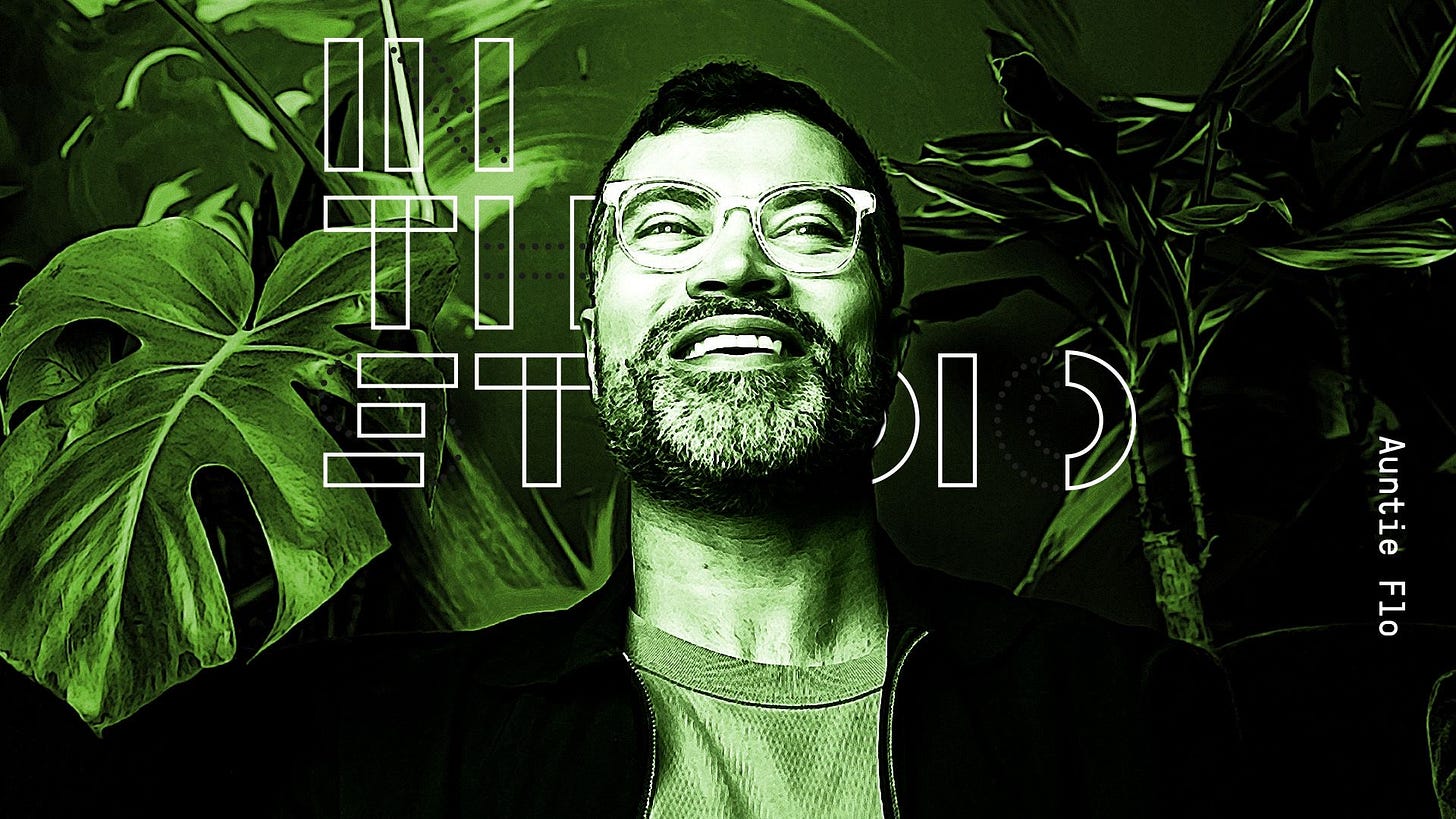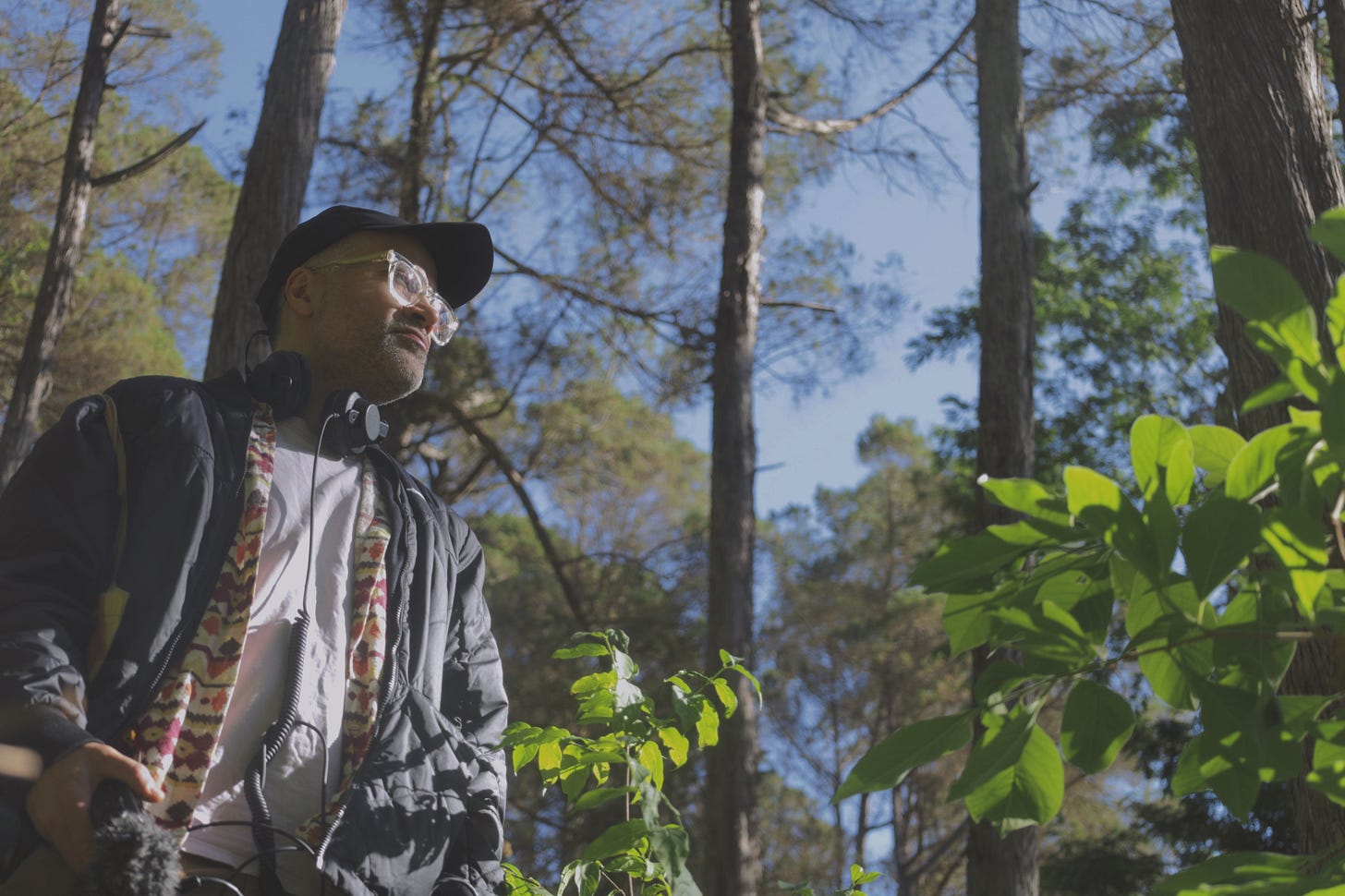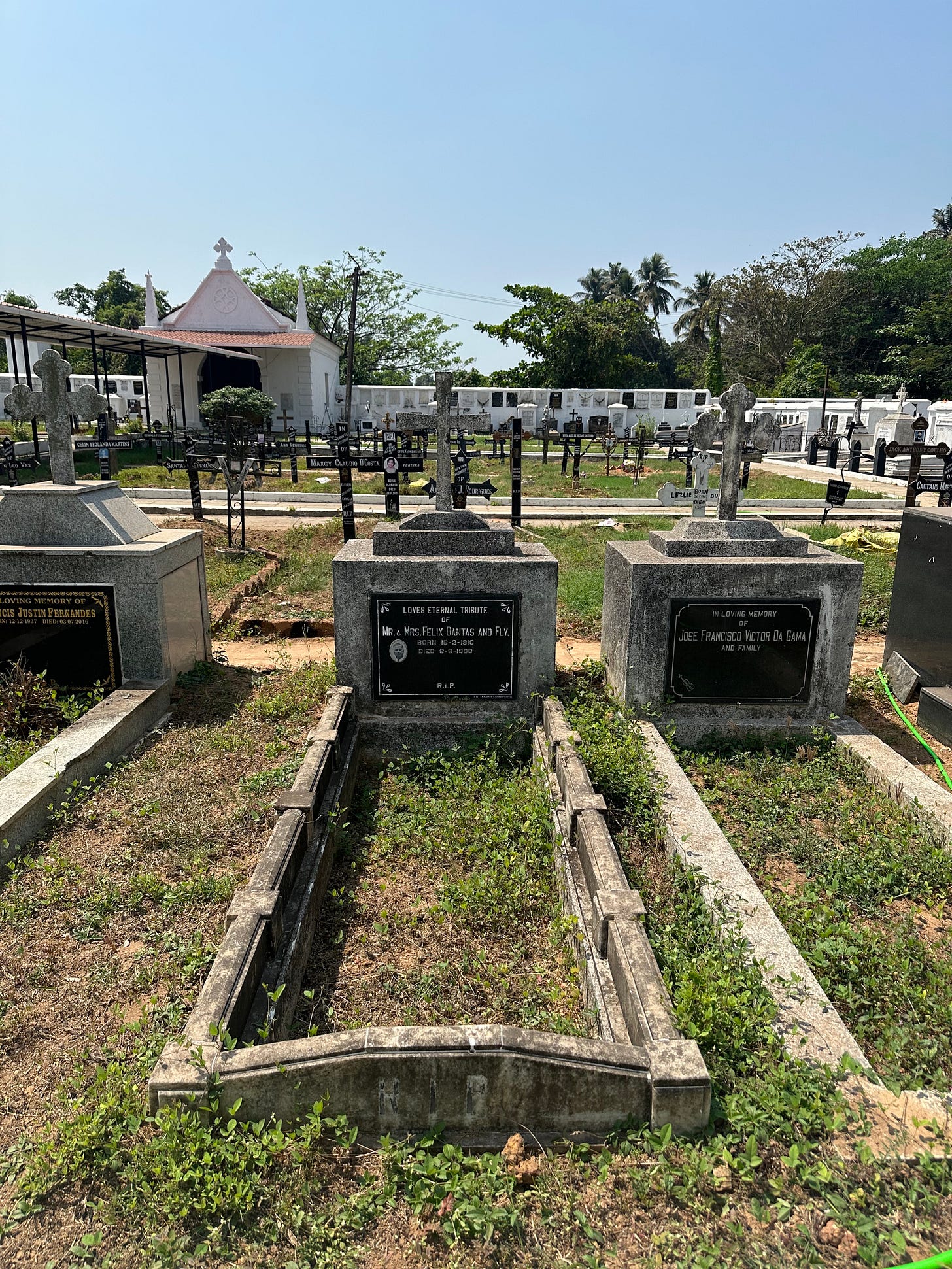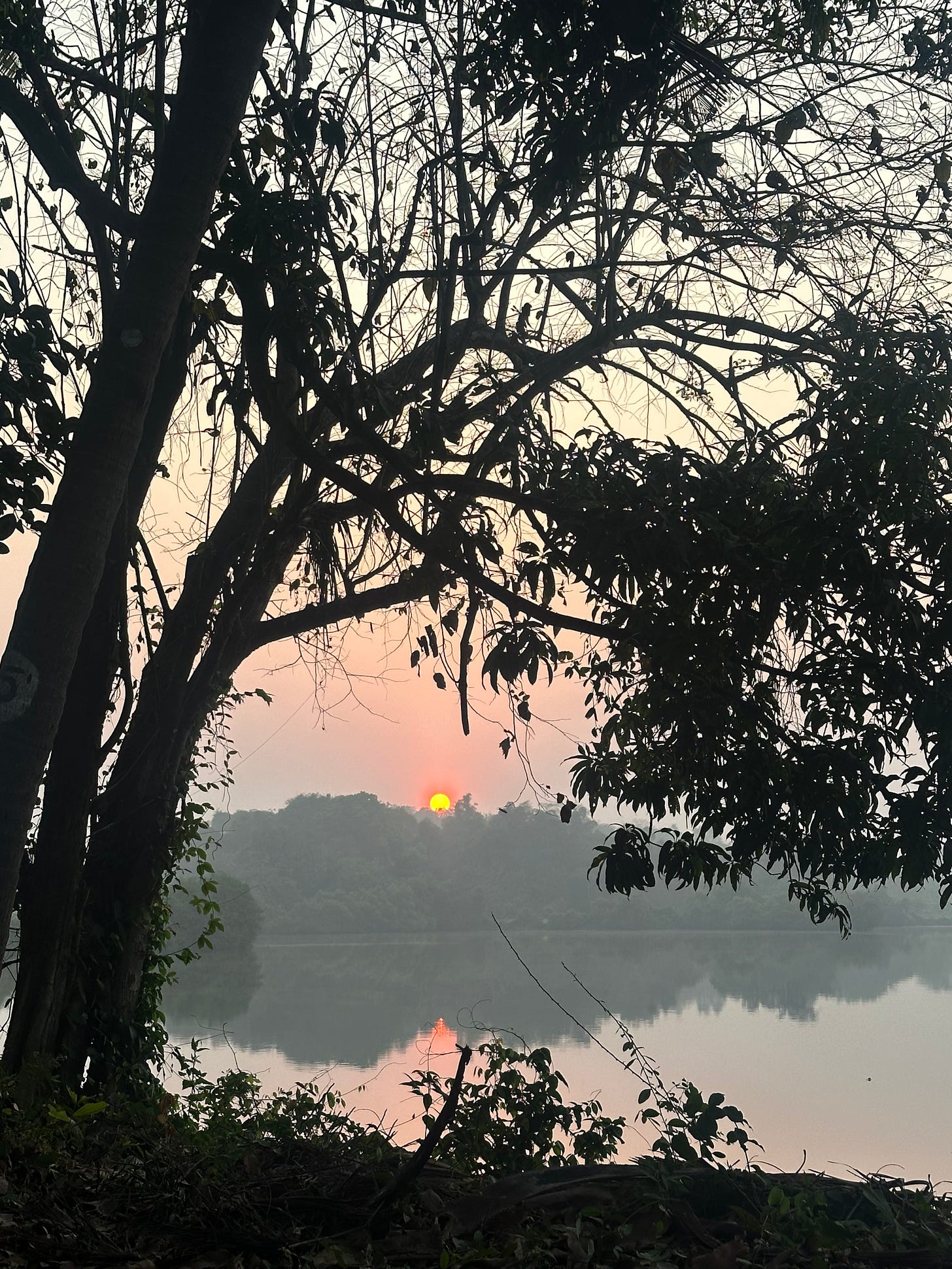BBC World Service: In The Studio
Insight into my BBC World Service documentary, creative practise in Kenya, Goa and London, field recording, musical collaborations, bioelectricity, family heritage as creative direction, Auntie Florie
For the past six months, I’ve been working closely with BBC producer Tom Raine to create a documentary for the BBC World Service ‘In The Studio’ programme: a podcast that ‘takes listeners into the minds of the world’s most creative people, with unprecedented access’. It runs for 26 mins, so allows more of a deep dive into an artists practise.
LISTEN HERE
Tom had previously covered me on 6Music talking about my work with biosonification of mushrooms:
For the documentary, I wanted to really dig deep into my own creative processes. I was fortunate that I had the opportunity to base the documentary around an epic trip: a two-week journey to Kenya and then to onto Goa, India - where I would perform live, conduct workshops on plant music, go on retreat to focus on field recording and deep listening.
The trip also allowed me to travel to two places that my family has deep connections to, charting the migratory path that my mother’s family went from Goa to Kenya in the 50’s and Kenya to the UK in the 70’s.
Due to limitations on length, the documentary touches on the above themes but thought I’d use this platform as an opportunity to dig deeper and give you an insight into my thinking prior to the trip. I’ll try to follow up with more insights and stories from the trip itself, as I recorded dozens of fascinating conversations that didn’t make the final cut.
Defining my ‘Studio’
My aim going into the trip was to explore three areas that have consistently fuelled my creativity as a musician and sound artist:
Travel and Serendipitous Encounters
Soundscapes and Natural Rhythms
My roots, direct and indirect influences
Over the years, I’ve felt increasingly lucky that being creative is what I do. The ability to think up and present new ideas to the world is what motivates me, gives me great pleasure but also regulates me - I’ve come to learn that being creative is good for my health.
I realised that my ‘studio’ isn’t just four sound proofed walls with a bunch of instruments, it was travel itself, it was the people I met, the natural world I listened to, the connections I felt…
I wish that everyone would have the chance to be creative. In the busy world we live in, the pressure to make ends meet often prohibits our creative time, and the increasingly powerful dominance of advertising and social media captures draws our attention away from our time to think creatively.
Rather than creating, social media dictates that we compare ourselves to others, and advertising dupes us to believe false promises on happiness. Rather than making new things, we can get stuck in doing the same things day in and day out, causing us stress and often leading to rigid thinking.
Just look at the freedom a child has within play. Fundamentally their creative brains are fully engaged - no rumination on the past and blissfully unaware of the clock and what comes next. This act of pure play is one that us adults could do well to learn from, and although not possible all the time, finding opportunities to return to a child-like place of play is something to strive for.
Being creative is fundamentally not about making money. We have a word for that: innovation. One can be both creative and innovative, but creativity doesn’t necessarily have to lead to financial gain. Creativity in its purest form is a state of consciousness, which some call the state of flow.
Flow experiences are optimal experiences - where the skills one has learned over many hours of practice and training are put to use in meeting a new challenge, one that can be met at the highest level without the need for conscious thought. In this flow experience, challenges are met, expectations are exceeded and this leads to immense joy and satisfaction. This is one of the reasons I’ve called myself Auntie Flo and run this blog/record label called A State Of Flo.
Over the past 15 years of working creatively, I’ve continued to seek out these flow experiences and consciously seek a return to child-like state of play as much as possible. Whilst opportunities to experience either are often fleeting and tricky to come by, the reward in finding them is the closest I’ve come to transcendence - defined by various psychologists as human flourishing.
The Power of Collaboration
During my music production career, my main creative inspiration has been collaboration with others. I’ve had 15 years of experience travelling the world as a DJ. During these trips, I often serendipitously meet people who I end up collaborating with. I find music such a powerful mechanism to break down any cultural or language barriers - I can be in a studio with someone and connect with them without the need to converse in their language.
The true beauty of music is the pro-social way it can connect us altogether. I’ve made music in Cuba, Brazil, Uganda, The Arctic Circle, South Korea and many more places with chance encounters - in makeshift studies, after serendipitous meetings. Working with others helps create a synergy where we can equally exchange ideas and experiences and translate them into a song or performance.
I view collaboration as an equal exchange - ideally there isn’t a power dynamic at play and this freedom of joint expression leads to the best possible ideas being laid down. During this trip I plan to find some ad hoc studio time and am excited to see what we come up with.
Connecting with the natural world
Another source of creative inspiration is the natural world. In the same way that one might take photographs, I record audio. Sound is so rich in information, and recording in built environments is a great way to tap into the culture and the vibe of a place. I made the album Radio Highlife with this in mind - with tracks based on little snippets of sound recorded in places all over the world.
Over the past few years, my attention has turned more towards the natural soundscapes, which are equally rich in sonic information. Recording the natural world with headphones on and a good microphone can be like an out of body experience - you hear things that you previously were not aware of. If you can allocate some time to doing these recordings, your ears will tune into the ecosystem all around you, hidden in plain sight. This ecosystem isn’t just one thing grouped together but millions of things happening at once. It isn’t random either, with many sounds happening in symbiosis with one another - all connected in their own way.
Another way of connecting with nature has been my forays into bioelectricity, and specifically turning plant and fungi data into sound. Biodata is a way of tuning into life. Turning this data into audible sound is a very literal way to connect with the world all around us, listening to what it has to say. Again, this highlights the living ecosystem that exists all around us, giving nature a voice
Connecting with nature in these ways has helped me develop my listening skills. I have been inspired to follow Pauline Oliveros’s methodologies around ‘deep listening’ - a listening practise which has many parallels to a meditation practice and is fundamentally about being present and attentive to the moment, actively and patiently listening to the sounds around us.
The way in which sound is experienced during deep listening is a source of creative inspiration for me. I’ve been developing a naturalistic means of composing, which steps away from the dominance of the metronome, so present across most forms of music, and returns to nature’s symphony.
My roots, direct and indirect influences
I’ve been asked many times whether my family upbringing and history has influenced my music or my creative processes. It seems like such an obvious connection that because I make music with a Latin or African rhythmical flavour, it must be due to my Mum being born in Africa or being Goan.
Up until recently, I have downplayed this as the music my parents listened when I was growing up wasn’t distinctly from any place in particular, and largely cover the classic western canon of popular music from the Rolling Stones to Van Morrison (with a dash of Hugh Masekela and Paul Simon). I have no recollection of the music I had exposure to growing up directly influencing the music I make now - on the contrary, a lot of my musical tastes were in direct opposition to the music my parents listened to (the renegade teenager syndrome). However, I have started to consider whether my roots have had an indirect influence and this is something I want to explore during this trip.
I am acutely aware that my mum was born in Kenya and the wider d’Souza family is originally from Goa. The use of the Auntie Flo name is a direct link back to Goa, and to my Auntie Florie, who I was compared to by my mum when I was younger. So the Goa connection as well as seeking Flow experiences did create my artist name.
More interestingly, I’ve been considering whether my Goan roots have perhaps led to my seeking out a more diverse sound for my music. Something about my acute awareness of my past, influencing certain approaches, perspectives and interests in my present.
Two things have stuck with me when visiting both Kenya and Goa in the past few years. In both places, my local host welcomed me with the same phrase “Welcome Home Brian”. This sentiment took me by surprise - I had never considered either place ‘home’, and felt little connection other than in my distant past.
My mum had always considered herself more British than Kenyan or Goan, for example, and the insights into her family history didn’t lead much into the cultural or historical or political - just on the relatives in the family as individuals. Perhaps this was my fault for not asking these questions to dig deeper, but the sense was that I was Scottish and British, with a mixed identity but nothing more than that. My immutable characteristics weren’t what define me.
Does the past in any way define the present? Is heritage a hidden creative director, sparking ideas and fuelling inspiration?






